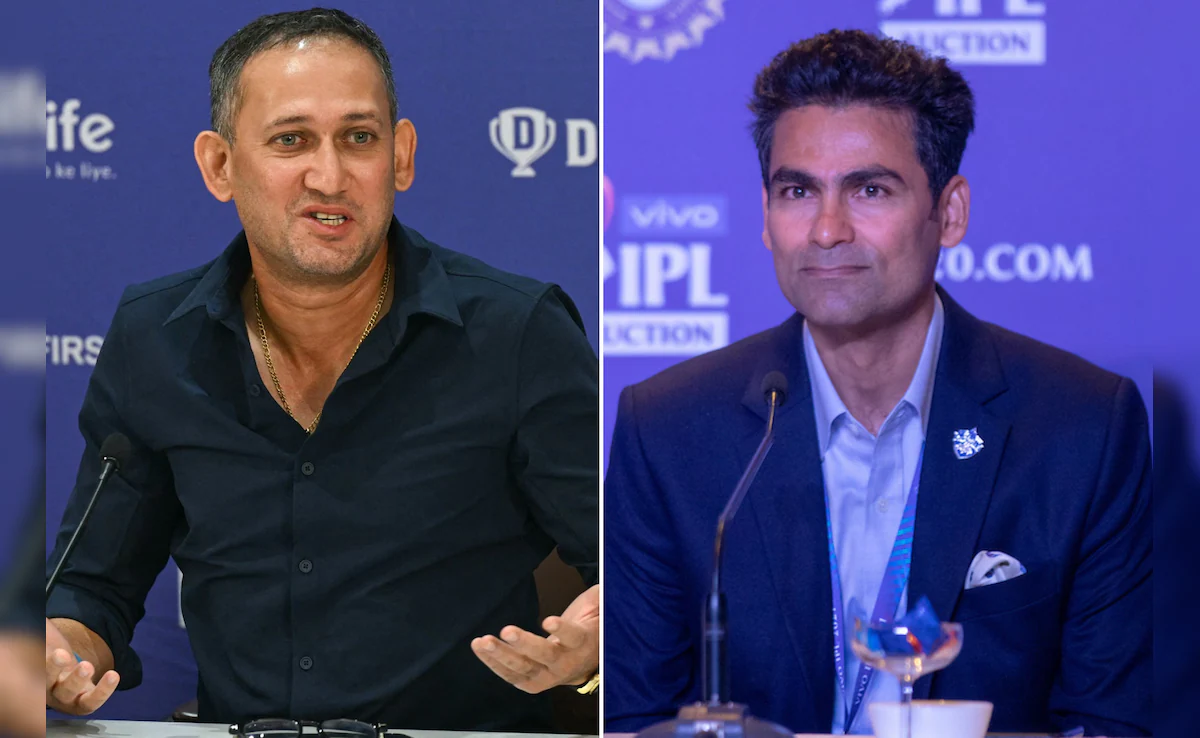Former Indian cricketer Mohammad Kaif has strongly criticized India’s chief selector Ajit Agarkar for what he termed a “questionable and unfair” team selection decision ahead of the upcoming international series. Kaif, known for his candid opinions and deep understanding of the game, did not hold back while expressing his disappointment with the choices made by the selection committee. His remarks have sparked widespread debate among fans and cricket experts, reigniting discussions about fairness, merit, and consistency in national team selections.
The controversy reportedly centers around the exclusion of a few in-form players who have performed consistently in recent domestic tournaments and franchise leagues. Kaif expressed his frustration on social media, suggesting that the selectors may be overlooking deserving talent while continuing to back out-of-form players. Without naming individuals directly, Kaif implied that the selection committee seems more focused on reputation and seniority rather than current performance and team balance.
“This is not how a national team should be picked,” Kaif stated during a recent sports discussion show. “Form must be rewarded, and hard work should count. When selectors ignore consistent performers, it sends the wrong message to younger players who are working hard at the domestic level. You cannot have one rule for some and another for the rest.”
Kaif’s remarks resonated with many fans who have long questioned the transparency and logic behind certain selection calls. Social media quickly lit up with reactions, with some praising Kaif for speaking truth to power and others defending Agarkar’s decision-making, emphasizing that team combinations often depend on long-term strategy rather than immediate form.
Ajit Agarkar, who took over as India’s chief selector in 2023, has generally been viewed as progressive and data-driven in his approach. However, several of his recent calls — including the choice of backup players and middle-order combinations — have been met with skepticism. Critics argue that while Agarkar’s intent might be to maintain stability and experience, the outcome has sometimes sidelined players who have earned their spot through recent performances.
Kaif’s criticism, coming from someone with firsthand experience in Indian cricket’s competitive environment, carries significant weight. A former middle-order mainstay and a key figure in India’s early 2000s era, Kaif has always been vocal about the importance of meritocracy and mental toughness. He believes that fairness in selection not only boosts team morale but also nurtures future stars who feel they have a genuine chance to break into the national side.
“It’s not about one player or one match,” Kaif elaborated. “It’s about sending the right message. Players should know that consistent performance will be rewarded, and favoritism or reputation won’t decide careers. That’s how you build a strong team culture.”
While Agarkar has yet to respond directly to Kaif’s comments, sources close to the selection panel have defended the decisions, citing workload management, team balance, and specific match conditions as factors behind certain choices. They argue that the committee’s goal is to prepare a versatile and balanced squad capable of adapting to different playing conditions across formats.
Nonetheless, Kaif’s statements have sparked important conversations within the cricketing fraternity. Former players and analysts have echoed his concerns, emphasizing the need for clearer communication between selectors and players. Transparency, they argue, could go a long way in preventing misunderstandings and maintaining trust within the system.
As the Indian team gears up for its next challenge, the debate over selection policies is unlikely to fade anytime soon. Whether Agarkar’s decisions ultimately prove justified or not, Kaif’s bold critique has once again drawn attention to a long-standing issue — the delicate balance between experience, form, and fairness in Indian cricket.







